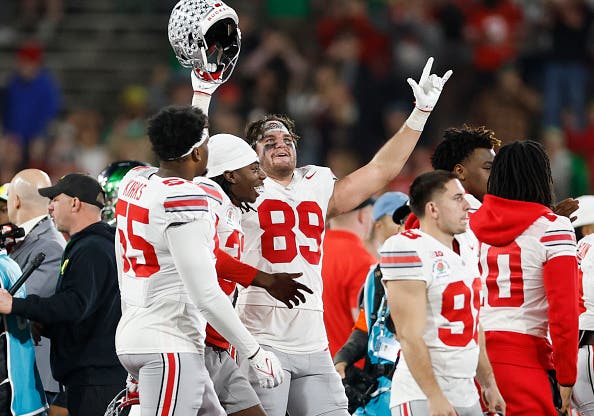
It's a strange world we live in, where the idea of an alien invasion us doesn't seem to phase us here in Florida anymore. We've been bombarded with so many alien movies, TV shows, conspiracy theories and Florida man stories that it's almost become the norm to expect a close encounter of the third kind.
Take the infamous Roswell incident, for example. Back in 1947, the discovery of scraps of rubber and metal in New Mexico sparked the hunt for UFOs and alien life on Earth. But even though the official explanation was that it was just a downed weather balloon, people weren't satisfied. They wanted to believe that it was the remains of something extraterrestrial.
Fast forward 80 years, and we're still searching for signs of life beyond our planet. The recent reports of the US military shooting down unidentified objects have only added fuel to the fire. But even with all this excitement and fear about an alien invasion, people don't seem to be that bothered.
Florida Alien Invasion:
Maybe it's because we've been let down too many times before. Remember when the Mayan calendar predicted the end of the world in 2012? Or when Y2K was supposed to cause chaos and destruction? We've been through so many false alarms that the thought of aliens doesn't seem that scary anymore.
Or maybe it's because we've become desensitized to the idea of aliens. We've all been to Walmart in Cape Coral right? Plus, with so many movies and TV shows featuring extraterrestrial life, we've grown accustomed to the idea that there might be other beings out there. We've seen them portrayed as friendly, like E.T., or as terrifying, like the Xenomorphs from Alien. But either way, we're not that fazed by the possibility of them visiting us.
Of course, there are still skeptics who argue that many UFO sightings are just misidentified weather balloons. But even they can't deny that there's something fascinating about the idea of life beyond our planet. Whether it's a sign of our curiosity or our love for science fiction, the fact remains that we're not that scared of the idea of aliens anymore.
So, if you see a UFO hovering above your house, don't be too alarmed. It's probably just a weather balloon. Or, who knows, it could be little green men from outer space. But either way, it's not that big of a deal. After all, we're Floridians, and we've seen weirder things than that!
How Florida Ranks In 2023’s Most & Least Educated States in America
With BLS data showing a correlation between higher education levels, higher income and lower unemployment rates, the personal-finance website WalletHub today released its report on 2023's Most & Least Educated States in America, as well as expert commentary. So How does Florida rank in the Most & Least Educated States in America study? In order to determine the most educated states, WalletHub compared all 50 states across 18 metrics that examined the key factors of a well-educated population. Educational attainment, school quality as well as achievement gaps between genders and races.
For millions of Americans, a good education is the ticket to a better future. College opens doors to more career opportunities, higher earnings and new social connections, among other benefits. But how much schooling one receives also matters to some extent. Generally, the higher the level of education one completes, the higher their income potential and the lower their chances of unemployment become.
Some states are able to provide better quality education than others, though. In this study, WalletHub compared all 50 states across 18 metrics that examined the key factors of a well-educated population: educational attainment, school quality and achievement gaps between genders and races.
How educated is Florida? (1=Most; 25=Avg.):
Main Findings
Most Educated States
Note: With the exception of “Total Score,” all of the columns in the table above depict the relative rank of that state, where a rank of 1 represents the best conditions for that metric category.
% of High-School Diploma Holders
- 1. Montana
- 2. Vermont
- 3. New Hampshire
- T-4. Wyoming
- T-4. Maine
- 46. New Mexico
- 47. Louisiana
- 48. Mississippi
- 49. Texas
- 50. California
% of Associate's Degree Holders or College-Experienced Adults
- 1. Colorado
- 2. Utah
- 3. Washington
- 4. Minnesota
- 5. Oregon

- 46. Mississippi
- 47. Kentucky
- 48. Arkansas
- 49. Louisiana
- 50. West Virginia
% of Bachelor's Degree Holders
- 1. Massachusetts
- 2. Colorado
- 3. Maryland
- 4. New Jersey
- 5. Vermont

- 46. Kentucky
- 47. Louisiana
- 48. Arkansas
- 49. Mississippi
- 50. West Virginia
% of Graduate- or Professional-Degree Holders
- 1. Massachusetts
- 2. Maryland
- 3. Connecticut
- 4. Virginia
- 5. New York

- 46. Nevada
- 47. Mississippi
- 48. North Dakota
- T-49. Arkansas
- T-49. West Virginia
Avg. University Quality
- 1. Massachusetts
- 2. Connecticut
- 3. Rhode Island
- 4. Wisconsin
- 5. New Hampshire
- 46. Idaho
- 47. Hawaii
- 48. South Dakota
- 49. West Virginia
- 50. Colorado
Methodology
In order to determine the most and least educated states in America, WalletHub compared the 50 states across two key dimensions, Educational Attainment and Quality of Education.
We examined those dimensions using 18 relevant metrics, which are listed below with their corresponding weights. Each metric was graded on a 100-point scale, with a score of 100 representing the “most educated.” In certain metrics where women showed an advantage over men and black people over white people, we gave equal credit to the states with no gender/racial inequality. These metrics were marked accordingly with an asterisk (*).
We then determined each state’s weighted average across all metrics to calculate its overall score and used the resulting scores to rank-order the states.
Educational Attainment - Total Points: 60
Quality of Education & Attainment Gap - Total Points: 40
Sources: Data used to create this ranking were collected from the U.S. Census Bureau, National Center for Education Statistics, U.S. News & World Report, Data Resource Center for Child and Adolescent Health, National Summer Learning Association, The Campaign for Free College Tuition, Western Interstate Commission for Higher Education, U.S. Department of Education, The College Board and WalletHub research.





